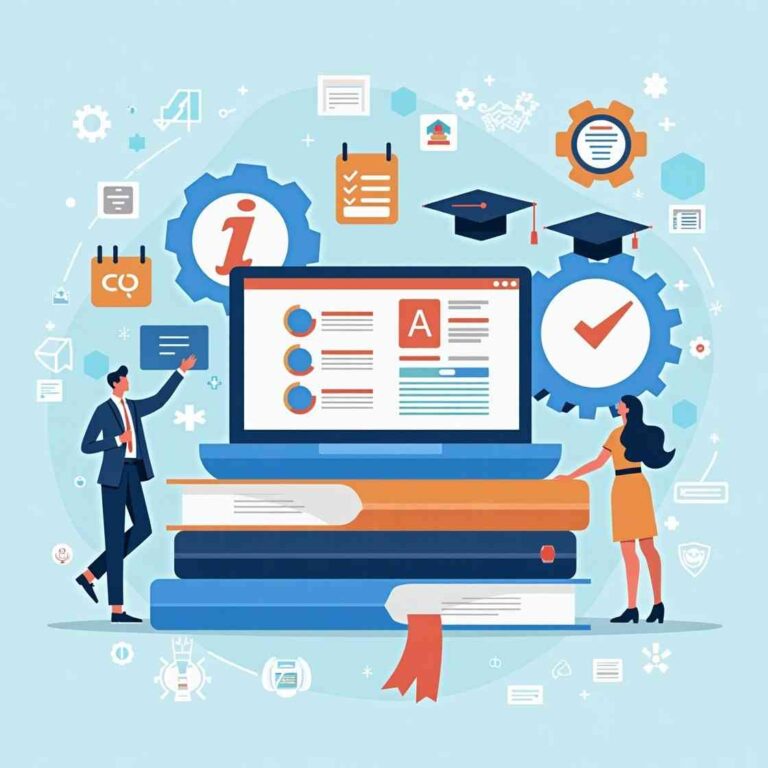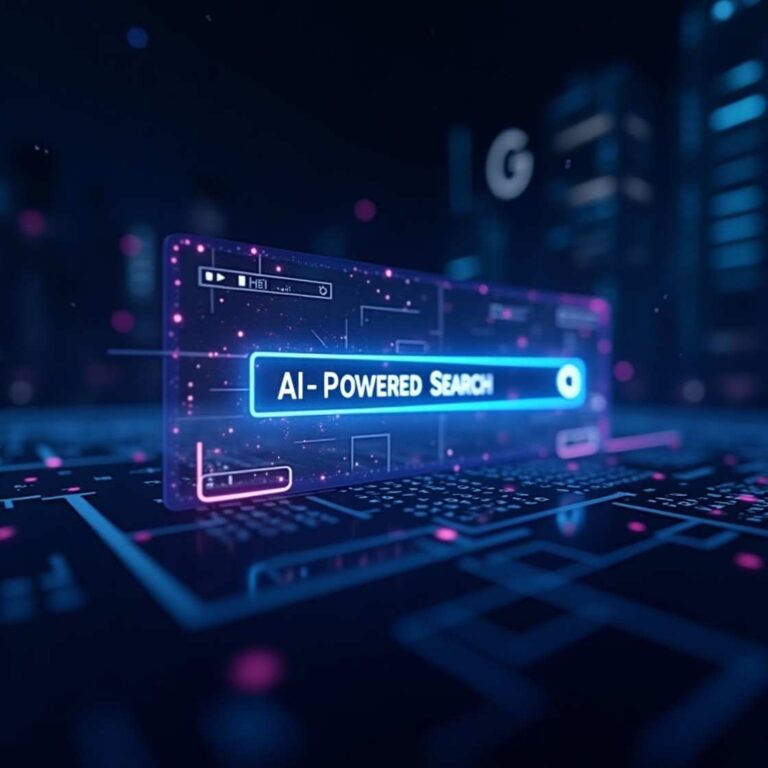Table of Contents
Introduction
AI vs Human Teachers—can AI truly replace traditional education? The rise of artificial intelligence (AI) in education has sparked major debate. AI-powered tools are transforming learning with personalized lessons, instant feedback, and automation. However, education is more than just delivering information—it requires emotional intelligence, mentorship, and creativity. This article explores the pros and cons of AI vs human teachers and whether AI can ever replace traditional education.
AI vs Human Teachers
1. Flexibility
AI Tutors
- Available 24/7, allowing students to learn at their own pace.
- Ideal for self-paced learning.
- AI platforms like Duolingo and Khan Academy adapt lessons based on progress.
Human Teachers
- Follow a fixed schedule, requiring students to attend sessions at set times.
- Structured learning approach helps with discipline.
- May not be flexible for students with busy schedules.
Pros and Cons
- AI Tutors: Highly flexible but lack structured discipline.
- Human Teachers: Provide structure but may not fit all schedules.
2. Personalization
AI Tutors
- Analyze a student’s performance and customize lessons accordingly.
- Provide instant feedback and adjust difficulty levels dynamically.
Human Teachers
- Adapt lessons based on a student’s emotions and behavior.
- Recognize non-verbal cues like frustration and confusion.
Pros and Cons
- AI Tutors: Highly personalized but lack emotional intelligence.
- Human Teachers: Adapt emotionally but may not offer real-time data-driven customization.
3. Emotional Support
AI Tutors
- Cannot provide real emotional encouragement.
- AI chatbots can mimic empathy but lack true understanding.
Human Teachers
- Offer motivation, encouragement, and confidence-building.
- Best for students needing reassurance and emotional support.
Pros and Cons
- AI Tutors: Emotionally neutral but provide unbiased support.
- Human Teachers: Offer empathy and motivation but vary in patience and approach.
4. Feedback Speed
AI Tutors
- Provide instant feedback and corrections.
- Useful for math, coding, and structured subjects.
Human Teachers
- Take longer to assess subjective subjects like writing.
- Provide detailed, context-based feedback.
Pros and Cons
- AI Tutors: Instant feedback but lacks depth.
- Human Teachers: Slower feedback but more detailed.
5. Creativity Support
AI Tutors
- Excel at structured learning but lack creativity.
- Can suggest ideas but don’t engage in deep brainstorming.
Human Teachers
- Encourage open-ended discussions and artistic expression.
- Best for subjects like writing, music, and design.
Pros and Cons
- AI Tutors: Great for structured learning but not creativity.
- Human Teachers: Encourage creativity but may not be highly structured.
6. Engagement and Interactivity
AI Tutors
- Use gamification, quizzes, and interactive lessons.
- Platforms like Quizlet and Brilliant make learning engaging.
Human Teachers
- Engage students through discussions and real-life examples.
- Provide a more stimulating, interactive experience.
Pros and Cons
- AI Tutors: Interactive but lack personal connection.
- Human Teachers: Engaging but may not use modern digital tools.
7. Consistency and Quality
AI Tutors
- Maintain consistent instruction quality.
- Not influenced by mood or fatigue.
Human Teachers
- Effectiveness depends on experience and teaching style.
- Quality can vary between individuals.
Pros and Cons
- AI Tutors: Reliable but impersonal.
- Human Teachers: Personal touch but inconsistent quality.
8. Cost-Effectiveness
AI Tutors
- Often free or low-cost.
- Subscription-based AI learning apps are cheaper than hiring tutors.
Human Teachers
- Can be expensive, especially for one-on-one sessions.
- Cost varies depending on expertise and location.
Pros and Cons
- AI Tutors: Affordable but less interactive.
- Human Teachers: More engaging but costly.
9. Subject Variety
AI Tutors
- Cover a broad range of subjects, from languages to coding.
- May lack depth in niche or advanced topics.
Human Teachers
- Offer deep expertise in specific fields.
- Can provide highly customized learning beyond AI capabilities.
Pros and Cons
- AI Tutors: Cover many topics but lack deep expertise.
- Human Teachers: Specialize in niche subjects but may be limited in range.
10. Real-World Application
AI Tutors
- Excellent for academic knowledge.
- Lack real-world application skills like critical thinking and problem-solving.
Human Teachers
- Use real-world examples and hands-on activities.
- Teach beyond textbook knowledge.
Pros and Cons
- AI Tutors: Theoretical but lack practical experience.
- Human Teachers: Offer real-world application but can be less efficient.
Comparison Table: AI vs Human Teachers
| Feature | AI Tutors | Human Teachers |
| Flexibility | 24/7 availability, self-paced | Fixed schedules, structured sessions |
| Personalization | Adapts lessons dynamically | Adjusts teaching style emotionally |
| Emotional Support | Limited emotional intelligence | Provides motivation & encouragement |
| Feedback Speed | Instant feedback, quick corrections | Detailed but slower feedback |
| Creativity Support | Lacks human-like creativity | Encourages creativity & brainstorming |
| Engagement & Interactivity | Gamification & quizzes | Real-life discussions & personal interaction |
| Consistency & Quality | Always reliable | Quality varies by tutor |
| Cost-Effectiveness | Cheaper, some free options | More expensive, varies by expertise |
| Subject Variety | Covers many topics | Specializes in specific fields |
| Real-World Application | Theoretical focus | Hands-on, real-world application |
How AI is Transforming Education
AI is making learning more accessible, efficient, and data-driven. Here’s how:
- Personalized Learning: AI adapts lessons to fit each student’s pace and learning style.
- Instant Feedback: AI provides immediate corrections, helping students learn faster.
- 24/7 Accessibility: AI-powered tutors and chatbots offer round-the-clock assistance.
- Automated Grading: AI reduces teachers’ workload by grading assignments and quizzes.
- Data Insights: AI tracks student performance to identify strengths and weaknesses.
Pros and Cons of AI in Education
Pros
✔ Scalability: AI can teach thousands of students simultaneously.
✔ Cost-Effective: Cuts down on costs related to physical classrooms and staff.
✔ Bias-Free Assessment: AI grading eliminates human bias in evaluations.
✔ Accessibility: AI makes education available to students in remote areas.
Cons
✖ Lacks Emotional Intelligence: AI cannot understand emotions, struggles, or social cues.
✖ Creativity Limitations: AI follows data patterns but lacks innovative thinking.
✖ Data Privacy Issues: AI relies on data collection, raising security concerns.
✖ Dependence on Technology: AI-based education is vulnerable to technical failures.
The Strengths of Human Teachers
While AI brings efficiency, human teachers offer qualities AI cannot replicate:
- Emotional Support: Teachers motivate and guide students through challenges.
- Critical Thinking Development: They encourage debates, discussions, and problem-solving.
- Adaptive Teaching Methods: Teachers adjust lessons based on real-time classroom dynamics.
- Social Skills Development: Students learn teamwork, communication, and empathy.
- Ethical and Moral Guidance: Teachers instill values and cultural understanding.
Pros and Cons of Human Teachers
Pros
✔ Emotional Connection: Teachers understand students’ emotions and struggles.
✔ Interactive Learning: Classroom discussions and activities promote engagement.
✔ Encourages Creativity: Teachers use storytelling, real-life examples, and hands-on activities.
✔ Holistic Growth: Education is not just about knowledge but also personal and social development.
Cons
✖ Limited Availability: Teachers cannot provide 24/7 support like AI.
✖ Subjectivity & Bias: Human grading and interactions can sometimes be biased.
✖ Higher Costs: Hiring, training, and maintaining teachers is expensive.
✖ Limited Scalability: A teacher can only manage a limited number of students effectively.
Can AI Replace Human Teachers?
The answer is no—at least not entirely. Here’s why:
- Education Involves More Than Facts: AI can teach knowledge, but human teachers shape character, morals, and social skills.
- AI Works Best as a Teaching Assistant: AI can support teachers, but it lacks the personal connection students need.
- Emotional Intelligence is Key: A machine cannot replace the emotional guidance of a teacher.
- AI Has Ethical & Data Concerns: AI requires data collection, raising security and privacy concerns.
- Some Subjects Require Human Interpretation: Literature, philosophy, and arts need discussion and emotional depth AI cannot provide.
The Future: AI and Human Teachers Working Together
Instead of replacing teachers, AI can enhance education by:
- AI-Assisted Learning: AI can personalize lessons while teachers focus on deeper engagement.
- Blended Learning Models: A mix of AI-driven learning and teacher-led discussions.
- Smart Classrooms: AI-powered tools like VR and AR can make learning more immersive.
- AI-Driven Analytics: AI helps teachers track progress and customize lesson plans accordingly.
Conclusion
AI is a powerful tool in education, but it cannot replace human teachers. While AI enhances learning efficiency and accessibility, human teachers provide emotional intelligence, mentorship, and creativity, which are irreplaceable. The future of education lies in a collaborative model where AI and human educators work together to create the best learning experience.
Disclaimer
This article is for informational purposes only. AI in education is constantly evolving, and results may vary based on individual needs and institutional implementations.








